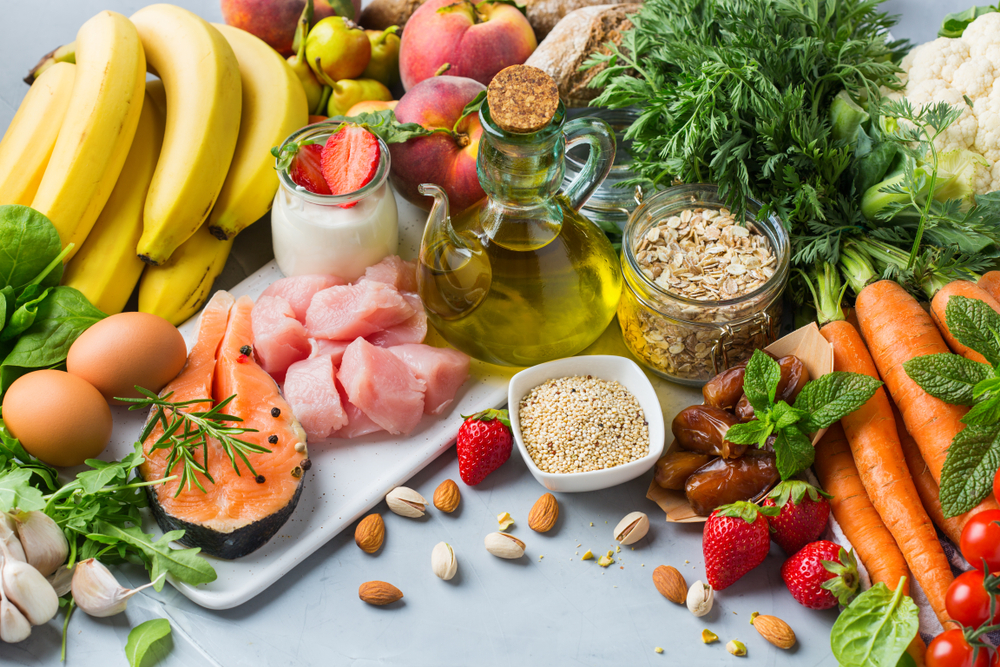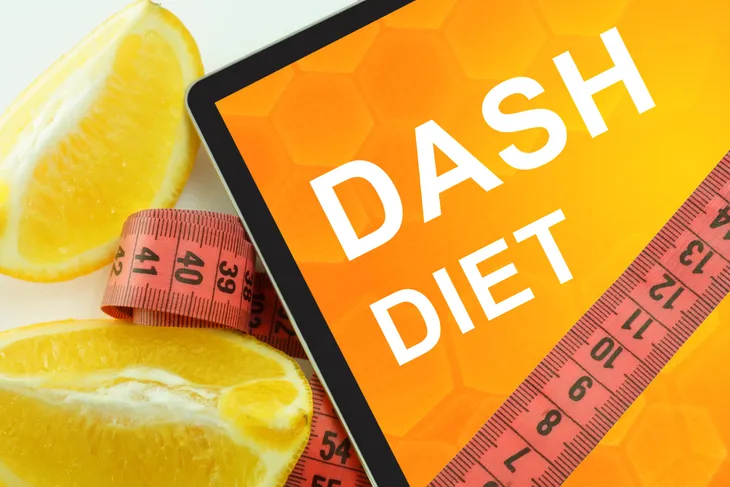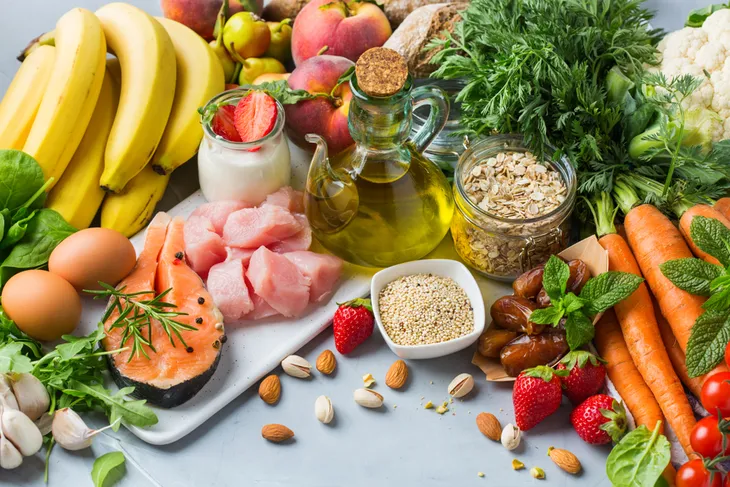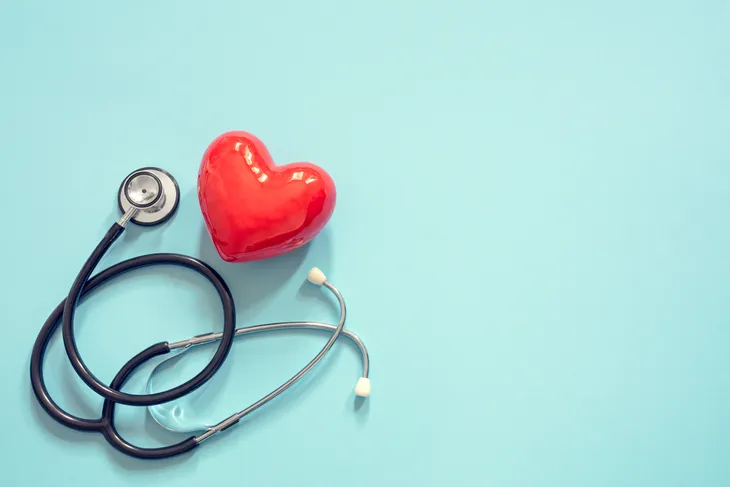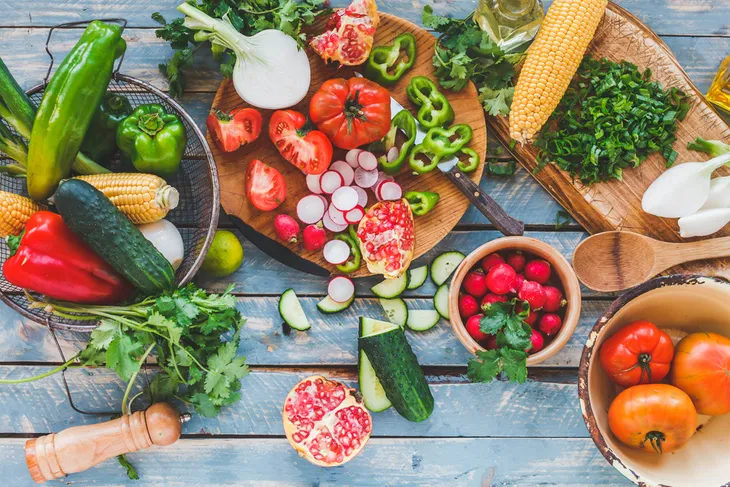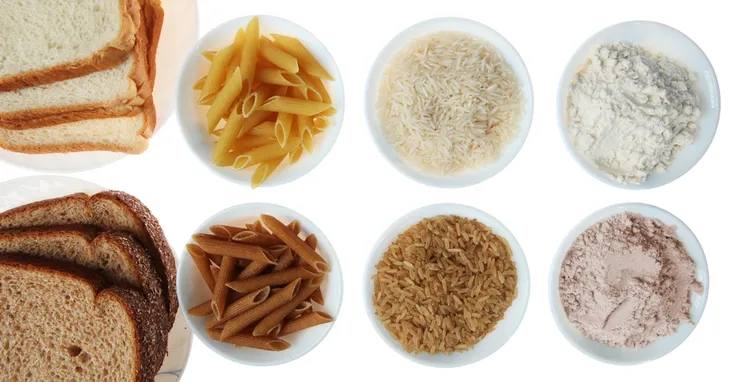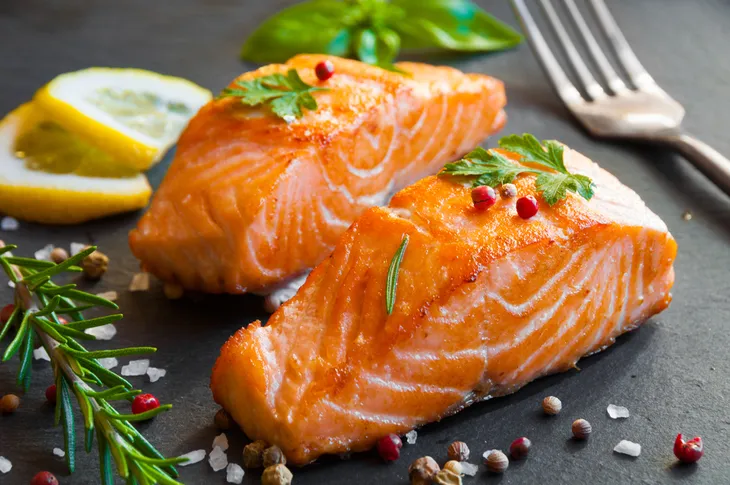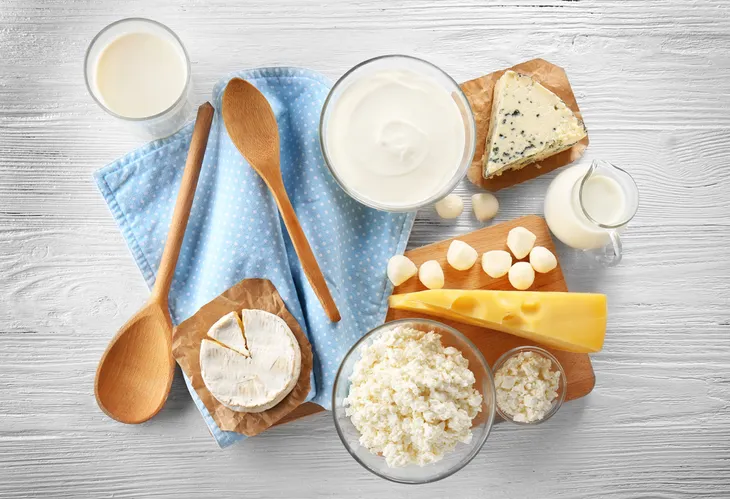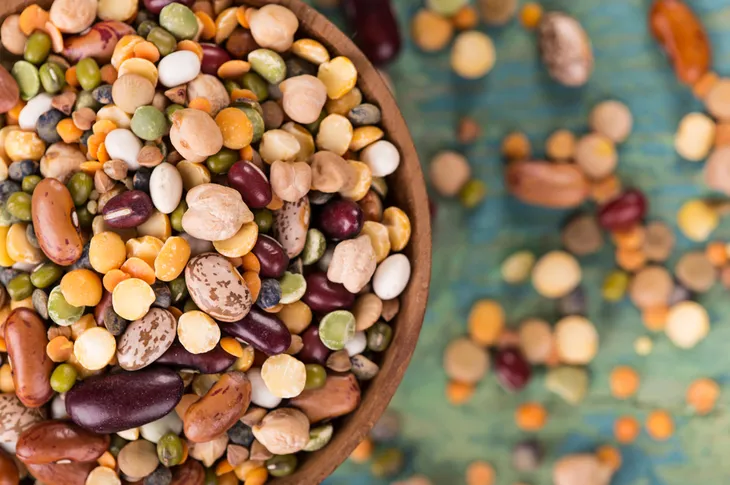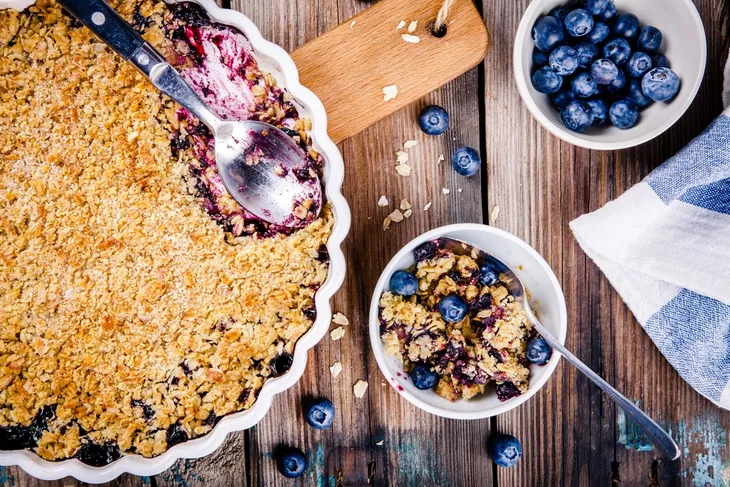Around 103 million adults in the U.S. have high blood pressure — that’s nearly 45-percent of all adults! Even worse, the Centers for Disease Control and Prevention (CDC), states only one out of four adults have their condition under control. So why should you get hypertension under control? High blood pressure is a serious health concern because it can lead to complications like a heart attack, stroke, or other life-threatening complications.
If you have high blood pressure your doctor may recommend some lifestyle changes including the DASH diet. This diet was specifically designed to help lower hypertension and reduce the risk of heart disease! In this article, we’ll uncover everything you need to know about the DASH diet, including how it works, the benefits, and how to get started. Let’s dive in!
What Is the DASH Diet?
The DASH diet is an acronym for Dietary Approaches to Stop Hypertension. Essentially, it’s a diet meant for people who want to either prevent hypertension or treat it. This diet may also help reduce your risk of heart disease.
The DASH diet puts a strong emphasis on filling your plate with fruits, vegetables, whole grains, and lean meats in an effort to get your blood pressure under control. The diet also encourages a low salt intake (about 1-teaspoon of sodium per day) which has been shown to help treat and prevent high blood pressure.
How Does the DASH Diet Work?
So how does it work? The good news is the DASH diet doesn’t require any extreme changes right away. You can start slow by making small changes each day until you adapt to the healthy eating plan.
Some examples of easing into the diet include adding one vegetable to every meal or using herbs instead of salt to flavor food. The National Heart, Lung, and Blood Institute also published an easy-to-use guide to help you figure out how many servings of each food you should eat.
The Benefits of the DASH Diet
The first and perhaps the most important benefit of the DASH diet is it may help lower your blood pressure. But first, what is blood pressure exactly? Healthline explains, “Blood pressure is a measure of the force put on your blood vessels and organs as your blood passes through them.”
Normal blood pressure for adults is a systolic pressure (pressure in your blood vessel when your heart beats) of below 120 mmHg and diastolic pressure (pressure in your blood vessels between heartbeats) below 80mmHG. Studies show that the DASH diet helps lower blood pressure in both healthy people and people with high blood pressure. The results were even more impressive when salt intake was restricted.
Weight Loss
Another benefit of the DASH diet is you may also lose weight. If you already have high blood pressure, your doctor may have already recommended that you lose weight anyhow. This is because being overweight can be a contributing factor to high blood pressure.
Healthline explains some studies have suggested that you can lose weight following this diet. That said, the individuals in the studies were following a calorie deficit diet which means they were eating fewer calories than expending. But since the DASH diet cuts out a lot of processed, high-fat, and sugary foods, some individuals may find they automatically reduce their calorie intake.
Other Potential Health Benefits
The DASH diet offers a variety of other potential health benefits too. For starters, it may decrease your risk of some cancers like colorectal and breast cancer and it may reduce your risk of metabolic syndrome.
Further, the DASH diet may also lower your risk of type 2 diabetes as it may help improve resistance to the hormone that regulates glucose in the body. Finally, the diet may also help reduce your risk of heart disease. The DASH diet puts a big emphasis on eating plenty of fruits and vegetables which are known to help reduce the risk of disease.
Should You Exercise on the DASH Diet?
Exercise is an essential part of any healthy lifestyle so yes, exercise is encouraged while following this diet. In fact, studies show that the DASH diet is even more effective in lowering blood pressure when combined with exercise.
The CDC recommends 30-minutes of moderate activity at least five days a week for most adults. If you’re not used to exercising, don’t fret. You can start with a 30-minute walk, gardening, cycling, swimming, or whatever form of physical activity you enjoy.
What to Eat on the DASH Diet
Now that we have a basic understanding of what the DASH diet is, how it works, and why it’s beneficial, next we’ll take a look at foods you can eat to help get you started!
It’s also worth noting, always consult your doctor before making any dietary changes and to find out if the DASH diet is right for you.
Fruits and Vegetables
Fruits and veggies are an essential part of any healthy diet. While following the DASH diet, it’s recommended that you eat four to five servings of vegetables per day. An example of one serving could be 1-cup of leafy greens or 1/2-cup of raw or cooked vegetables.
Further, you should also aim for four to five servings of fruits per day. Some examples of one serving include 1 medium fruit such as an apple, or 1/2-cup fresh or frozen canned fruit. That said, if you choose canned fruit, make sure there is no sugar added.
Grains
Grains like bread, rice, and pasta can also be a part of a healthy diet! The DASH diet recommends six to eight servings per day.
Some examples of one serving include 1/2-cup cooked rice or pasta, or one slice of whole-wheat bread. When choosing grains, you should opt for whole grains because they contain more fiber and nutrients compared to refined grains. Finally, to avoid adding too much fat to your meal, avoid adding butter, cheese sauces, and cream to your grains.
Lean Meats
Meat can be a great source of protein. It’s also rich in B vitamins and other important minerals like iron and zinc. When choosing meat on the DASH diet, opt for lean types of meat such as poultry, lean beef, or heart-healthy fish such as salmon, herring, or tuna.
You should aim for a 6-ounce serving (or less) per day. When cooking the meat avoid frying it and instead bake, roast, or grill the meat.
Fats and Oils
Too much fat can increase your risk for certain diseases and obesity. That said, fat can be good in moderation because it helps your body absorb vitamins and supports your immune system.
Mayo Clinic explains, “The DASH diet strives for a healthy balance by limiting total fat to less than 30 percent of daily calories from fat, with a focus on the healthier monounsaturated fats.” Aim for two to three servings of fats and oils each day. This could be 2-tablespoons of salad dressing or 1 teaspoon of margarine. Lastly, be sure to avoid trans fats that are commonly found in processed foods.
Dairy
Dairy products can be great sources of essential vitamins and minerals like vitamin D and calcium. But when following the DASH diet, it’s important to choose low-fat or fat-free dairy products.
Aim for no more than two to three servings of dairy each day. One serving can be 1-cup of skim milk or 1-cup of low-fat yogurt.
Nuts, Seeds, and Legumes
Nuts, seeds, and legumes are great sources of protein and other essential minerals like magnesium and potassium. Not only that but they also contain fiber and phytochemicals which may help protect against cardiovascular disease as well as some types of cancer.
The DASH diet recommends four to five servings per week. The reason you should consume these foods a few times per week instead of daily is that they are typically high in calories. One serving can be 1/3-cup of nuts, 1/2-cup of cooked beans, or 2-tablespoons of nut butter.
Sugar
If you often have a sweet tooth, you’ll be happy to learn that you don’t have to kick all sweets to the curb. Instead, they should be enjoyed in moderation. While following the DASH diet, you should aim for no more than five servings (or less) per week.
Some examples of one serving include 1-cup of lemonade or 1/2-cup of sorbet. Be mindful of the sugary treats you enjoy and try to opt for low-fat, or fat-free treats. It’s also important to cut back on added sugar because it has no nutritional value.
Can You Drink Alcohol on the DASH Diet?
First, it’s important to point out that drinking too much alcohol can increase your blood pressure. So whether you’re following the diet or not, if you want to help prevent high blood pressure, or treat it, you’ll need to cut back on alcohol.
With this in mind, while following the DASH diet, it’s recommended that you drink alcohol in moderation. Don’t exceed the guidelines of two or fewer drinks per day for men and one or less per day for women.
Learn more about the DASH diet in this easy-to-use guide published by the National Heart, Lung, and Blood Institute.
